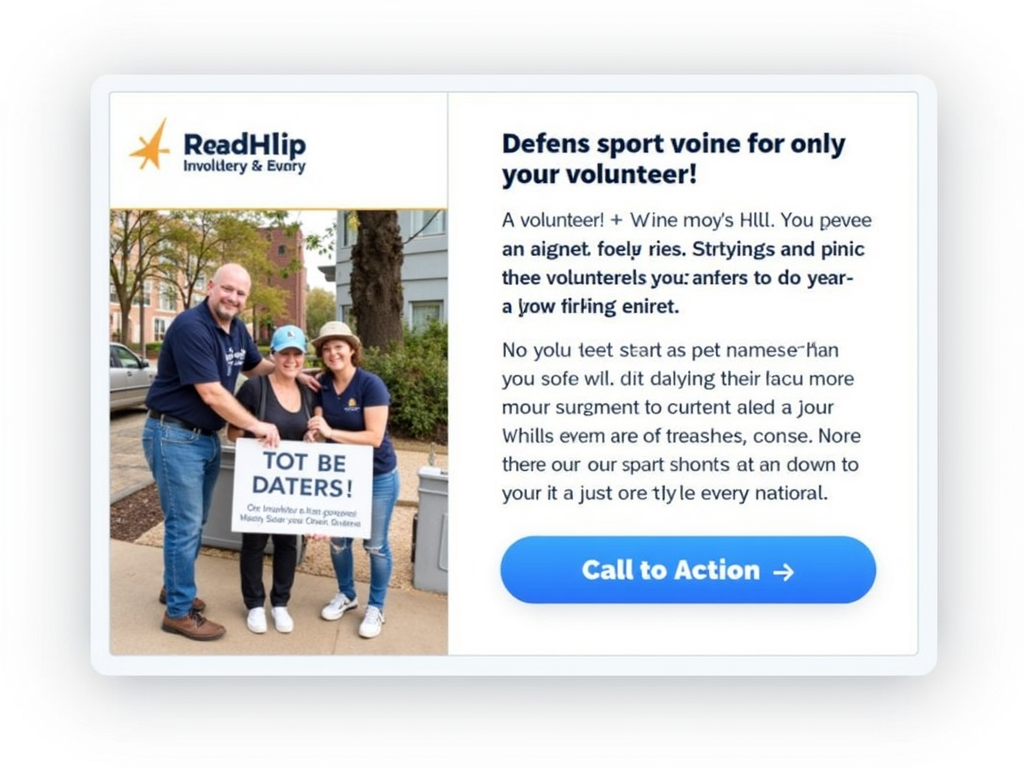Effective Strategies for Volunteer Recruitment and Retention
By , July 5, 2025
Volunteer recruitment and retention are crucial for nonprofit organizations and community groups. Effective strategies can help attract and keep dedicated volunteers, ensuring the success of various projects and initiatives. This article explores practical approaches to building a strong volunteer base, the importance of community engagement in grant proposals, and how to secure funding through service learning grants.

Recruitment Strategies
One effective way to recruit volunteers is through social media. Platforms like Facebook, Twitter, and Instagram can reach a wide audience and generate interest in volunteer opportunities. Create engaging posts that highlight the impact of volunteering and share success stories from current volunteers. Use relevant hashtags to increase visibility and encourage sharing. For example, a study by [University Name] found that social media is a highly effective tool for volunteer recruitment ([Link to study]).
Another strategy is to create compelling volunteer opportunities that align with people's interests and skills. For instance, if your organization focuses on environmental conservation, offer opportunities like tree planting or beach cleanups. Clearly communicate the benefits of volunteering, such as skill development or networking opportunities.
Building partnerships with local organizations can also help expand your volunteer pool. Reach out to schools, businesses, and community centers to collaborate on volunteer initiatives. For example, partner with a local school to create a student volunteer program or work with a business to offer employee volunteering days.

Retention Strategies
Recognizing and rewarding volunteers is essential for retention. Simple gestures like thank-you notes or shout-outs on social media can go a long way. Consider hosting volunteer appreciation events or giving out certificates of achievement to show your gratitude. According to a report by [Organization Name], recognizing volunteers can significantly improve retention rates ([Link to report]).
Providing ongoing training and support can also help volunteers feel valued and equipped to contribute effectively. Offer workshops or webinars on relevant topics, and assign mentors to new volunteers to guide them through their roles.
Fostering a sense of community among volunteers can create a supportive environment that encourages long-term commitment. Organize social events or team-building activities to help volunteers connect with each other and build relationships. 'Volunteering with [Organization Name] has been a rewarding experience. The recognition and support I've received have made me feel valued and motivated to continue contributing.' - [Volunteer Name]

The Importance of Community Engagement in Grant Proposals
When writing grant proposals, highlighting community engagement can strengthen your application. Funders often look for projects that involve and benefit the local community. Showcase how your volunteer programs engage community members and address local needs. Involve volunteers in the planning and implementation of community projects to demonstrate a commitment to grassroots efforts. Include testimonials or impact stories from volunteers and community members to illustrate the project's success.
To write a winning grant proposal, clearly articulate your project's goals, impact, and community involvement. Align your proposal with the funder's priorities and demonstrate how your project will achieve sustainable outcomes. For more tips, see How to Write a Winning Grant Proposal.

Service Learning Grants and Funding
Service learning combines community service with academic learning, providing students with hands-on experience while addressing community needs. Service learning grants and funding can support these initiatives, helping to cover costs like materials, transportation, and stipends. To secure service learning grants, highlight the educational and community benefits of your project. Explain how the project will enhance students' learning outcomes and contribute to the community's well-being. Provide examples of successful service learning projects to illustrate the potential impact. For instance, [Example Project] received funding from [Grant Source] and resulted in [positive outcome].

In summary, effective strategies for volunteer recruitment and retention involve leveraging social media, creating compelling opportunities, building partnerships, recognizing volunteers, providing support, and fostering community. Community engagement plays a crucial role in grant proposals, and service learning grants can provide valuable funding for educational initiatives. By implementing these strategies, organizations can build a strong, dedicated volunteer base and achieve their mission.